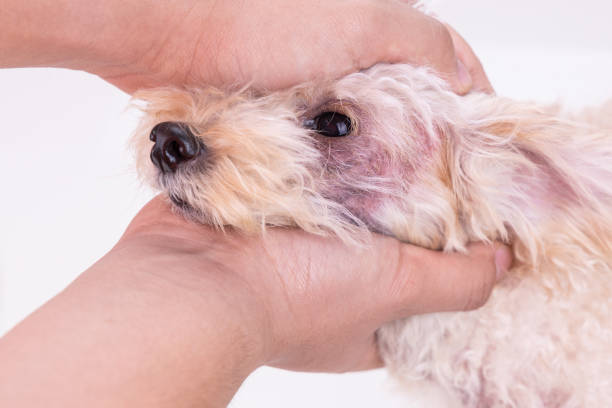Even though dogs can’t verbally communicate, they assuredly sense and express their feelings. It’s essential to recognize the signs of stress and depression in your dog, as these may be symptoms of another underlying issue. Here are a few methods dogs employ to manage fall allergies:
Keep Your Dog Indoors as much as Possible During this Time of Year
As much as your dog may love being outside, their symptoms will escalate if they are exposed to some aspects during this time.
Be Sure to Keep Your Pet Groomed
This includes brushing and bathing regularly. This will help remove allergens from its coat and skin.
Take Steps to Minimize the Amount of Allergens Inside Your Own Home
Keep your drapes closed, use dust-free cleaning products, and vacuum every day or two (or more if necessary).


Schedule Regular Grooming Appointments if Needed to Trim the Coat and More Thoroughly Clean the Dog’s Skin
This is especially important for heavier coated breeds, such as poodles and golden retrievers, that need to be groomed more often.
Be Sure Your Veterinarian Knows About any Allergies and is Aware of What Treatments (if any) Have Been or are being Used
This information will help ensure there is no allergic reaction to vaccinations or other medications.
Ask Your Vet for a Referral to a Veterinary Dermatologist
Especially if your dog is still scratching after using all the allergy-fighting strategies mentioned above.


Keep Your Pooch Well-Hydrated
Dogs drink more water in the fall and winter to keep warm. Be sure your dog has access to clean water at all times.
Antihistamines Can Help Relieve Some of the Symptoms of Allergies
But be sure to check with your veterinarian before giving any medication to your pet.
Keep an Eye on Your Pet’s Weight
Because dogs can also suffer from obesity, which can cause or exacerbate allergies.


Conclusion
If you live in a region with seasonal allergies, your dog is likely experiencing the same symptoms. You can help them cope by keeping them indoors and well-groomed to remove allergens from their coat and skin.
Be sure they also have access to fresh water at all times. If these strategies don’t seem to be working, speak with your veterinarian about additional treatments that may relieve you and your pet during this time of year.


